Podcast: Play in new window | Download
Subscribe: Apple Podcasts | RSS
Last Updated on October 17, 2022 by Rebecca Huff
This article was originally written in April 2015. In 2022, after a comment from my daughter, my goal was to slow down. I noticed it was becoming harder to get my family together, so I invited an expert to give us insight for making family meals happen.
You'll find tons of helpful information above and below, including resources and links, a podcast episode, books, and more.
What to do if Family Mealtimes Stop Happening
The importance of family dinners is clear, however life happens. After four of my six children became adults and moved out, our routines gradually became less consistent. Add in the fact that my husband commutes to work. Family mealtimes weren't happening.
While frequent family meals is high on my priority list, the cold hard fact is that as kids grow into young adults, it's not always possible, our schedules were all over the place.
I reached out to FamilyDinnerProject.org for some tips.
Links Mentioned In Podcast
- Benefits of Family Dinner for Adults (Empty Nesters, College Students, etc.)
- Family Breakfast Project – Activities with make ahead or quick breakfasts to get in some quality time
- Welcoming Table – A special series of resources for families with unique mealtime needs and challenges. Family members who are on the autism spectrum, or who have ADHD, learning disabilities, feeding disorders, or sensory processing issues need family dinner to be a safe and welcoming space.
- Technology at the Table – resources to help you decide what feels best for your family, along with fun ways to use devices to enhance family bonding, not distract from it.
- Youth Sports and Family Dinner – top tips and advice from a team of experts, as well as meal ideas that are perfect for busy athletes and their families. Use these tools as inspiration to keep family meals on the calendar, right alongside the big game.
- Eat, Laugh, Talk, The Family Dinner Playbook – 52 weeks of ideas for achievable family dinners with great food, fun and conversation. With tips to overcome common dinnertime obstacles, set goals and get closer as a family. Chapters on picky eating, screen time, tension at the table, busy schedules and more — plus hundreds of easy recipes and tons of ideas for engaging conversation and exciting dinner games.
Other Posts Mentioned in Podcast
Meet Bri DeRosa

Bri DeRosa is a freelance writer and communications consultant with a background in creative and dramatic writing, arts education, and service learning. She’s spent over a decade working in program development and creative initiatives, largely for non-profits and small businesses. Bri has been the Content Manager at The Family Dinner Project since 2014, has contributed to three cookbooks, and practices her family dinner skills every night at home with her husband and two teenage sons.
Here are two examples of newsletters from the Family Dinner Project that are applicable to this podcast episode.
Podcast Transcripts
Rebecca: I actually reached out to you because I am struggling myself with this subject, and so I thought as much as I try. And as much as this means to me, if I'm struggling, there have to be people out there that are also in the same boat.
Rebecca: It's easy to think that, Oh, I'm the only one that has this problem. My life is so difficult and busy. But it's not true really.
Bri: No, I mean, it's. We hear from so many families that this is challenging, This is hard. Family meals have gotten more difficult over the years. The external pressures, the things that make family life what it is today are actually like, they pretty much work against family meal times, right?
Bri: And, and everybody has this sense that like, I'm supposed to be able to do it all. I'm supposed to be able to do it all and do it perfectly. And that is not the. So, no, you are not the only one who is struggling. I do this for a living and I sometimes find it difficult, so I think we all just need to own right up front.
Bri: It is hard. It is hard for everybody. There are no right answers. There are only things that might help. Right. That makes me feel so much better.
Bri: Can you introduce yourself and tell me a little bit about what you do at Family Dinner Project? Sure. So I'm Bri d Rosa, and I am the content manager for the Family Dinner Project. So I do our communications, our editorial, our website , our social media, you know, all the things as well as, you know, we're a small and nimble team, so I also help out on the partnership side and just kind of where many hats, , And I've been doing that for, gosh, over eight years, , since I officially joined the team.
Bri: And I was consulting with the team for a few years before that even. So I've, I've kind of been around the family dinner project almost since the beginning. , and just have, you know, so much love for the mission and for the whole idea of. Eating together as a family. It's something that was important to me growing up.
Bri: It's something that is important to me as a mom and as a wife and, and you know, just, I think that, it's one of those things that although it is really difficult for many of us to pull off, it is rewarding and important to try to keep it at the center of, of our practice and our philosophy as families.
Rebecca: Yes. And that actually leads me to my first question is I wanted you to reiterate for us, I mean, cuz I think a lot of us know that family dinners are important. It's important, especially when you have children, but even if you don't, But I think it's so important, but some of us maybe lose sight of exactly why it's important.
Rebecca: So can we start out with maybe telling us a few of the top benefits of family dinner?
Bri: Yeah, no, and it's a great question and there are so many, , , so it's hard to highlight,, what are the most important ones, but family dinners, research has shown over decades. Decades of research has shown that family dinners have benefits.
Bri: That are physical and emotional and social and academics. So family dinner is really the one single activity that we know of that actually confers a number of different benefits in all of these domains in one package, right? You can certainly get nutritional benefits in other ways. You can get mental health benefits in other ways, academic benefits in other ways, but we don't know of any one thing that brings them all together in the way that family dinner does.
Bri: Some of the things that people are surprised to know about, and I always like to highlight these because, it, it's like, Oh, I didn't even know that was a thing. For example, family dinners actually increase literacy. In young kids, so the act of having conversation at the dinner table. The way that we talk to each other with multiple ages and stages, parents talking to kids, talking to each other.
Bri: All of that actually increases kids' vocabulary, their sequencing skills in the way that we tell stories, their language skills, and those things roll up to increased literacy. They have better reading skills when they're older by like grade three, grade five, those kids who have dinner with their family more frequently actually are better readers and they're better storytellers than kids who don't eat with their families.
Bri: That's, to me, like a mind blowing statistic, and I always love to bring that out because it shows that family dinner, you know, we think of like, Oh, my kids will, you know, be healthier. They'll eat better. Yes, absolutely. There are health benefits, right? There are all these other sneaky ways in which family dinner makes us stronger, happier, healthier people who eat dinner with their families.
Bri: young parents or new parents tend to actually be more satisfied with their marriages if they're trying to keep family dinner on the schedule while their kids are little. , which is the most challenging time actually, in some ways. People are like, I, we can't eat together. We can't even. Sleep. We can't function.
Bri: But if you can actually eat together, you're going to possibly have a better, stronger relationship with your spouse. we find that kids who eat dinner with their families, bounce back more easily. From cyber bullying and from other, interpersonal challenges, we find that they have better friendship skills, better social skills, teenagers tend to have lower incidences of depression, anxiety, mental health issues, eating disorders.
Bri: there's a lower risk of drug use and misuse, lower risk of, pre unwanted pregnancy. All of these things that parents worry about tend to be lower in families where kids eat with their parents.
Rebecca: Wow. And that's just a few of the benefits. I mean,
Bri: that's just a few, right? Like I could go on forever. That's a whole podcast in, in and of itself. But yeah, for real, these are some of the big ones. Yeah, I can say that you will absolutely be communicating a connectedness of bonding and importance of family life and importance of them to you as human beings. Mm-hmm. that can be really protective. Yes. And really vital. Right. If you do spend the time to eat together.
Rebecca: Mm-hmm. , I really like the way you put that. It actually gave me cold chills, so I, I really feel that it is so important. But families often face these scheduling challenges. You know, where one parent works a lot of overtime, or like my husband commutes a long way to work. On the way there and back, so like hours in the car or kids are involved in a ton of sports or other activities, or maybe they have, you know, an after school job or whatever.
Rebecca: Are we too busy? I mean, what? What are the creative ideas and solutions that you have for highly active families or families that just have to do a lot to get by?
Bri: Right. Yeah. No, and I think, So there's two, there's multiple questions right there and, and so much of this is so worth unpacking, I think, yes.
Bri: First and foremost, I do wanna say that we need to always acknowledge that there is an element of privilege in being able to have family dinner. Right? We absolutely, There are people in this world who work many jobs to make ends meet, who have multiple wage earners working many jobs to make ends meet teenagers who are responsible for helping finance the family, right?
Bri: All of these things are very much true. There are people who cannot afford. To feed their families on a regular basis. There are access issues, there are privilege issues absolutely throughout this. So I just wanna like be upfront and say that yes, we need to acknowledge that family meals are difficult structurally for many people in a way that they are not for many of the rest of us.
Bri: So that kind of setting that aside as like a whole other thing that we could spend hours trying to deconstruct and solve. You asked the question. Are we too busy? and there's no good way to answer that other than to say yes. I think that as a society, we are too busy the way that we have engineered family life and life for teenagers, especially, my gosh, we expect the world out of kids.
Bri: Multiple extracurriculars and after school jobs and be a stellar student. And yes, that makes us busy, and there are ways that families can, can define their own values and their own ways of relating to busyness and putting structure and boundaries around that. And everybody's choices are gonna be different because everybody is different.
Bri: The creative ways to get around it though are the really important things. So first of all, It doesn't have to be dinner. We say family dinner. It doesn't have to be dinner. It doesn't even have to be one of the three meals a day, right? Family breakfast is great. We actually have a section on our site, the Family Breakfast Project, which are all things that you can eat and do together in seven minutes or less.
Bri: Per, per morning. So we're not like, oh, be that movie family that sits down with a full spread of pancakes and eggs for 30 minutes and No, no,
Rebecca: I'm definitely putting that link and I definitely wanna put that link in the show notes, so make sure you get that link to me. Breakfast and set is, Repeat what it was exactly.
Rebecca: Breakfast in seven?.
Bri: So it's the Family breakfast project and it's breakfasts, with food fun and conversation that you can accomplish in less than seven minutes together. Okay. In the morning. Gotcha. Love. So lots of things that are like, make ahead, have 'em in the fridge overnight and then there, you know, it'll be like, hey.
Bri: Do these, you know, fun yoga poses together and ask this conversation starter before everybody gets out the door. Mm-hmm. , or play this game and, you know, talk about this to set the stage for the day. Very quick connected ways to just kind of set the stage right. That's one way that you can do this. There are multiple other ways.
Bri: you can have a snack together, you. Sometimes like kids have sports in the evening. It's crazy. You don't know when you're all gonna be able to gather, but maybe you have 10 minutes after school before everybody gets out the door for all of their things. And you can have like a sit down, healthy snack together.
Bri: Here's some veggies and hummus. Here's some fruit and dip. If you've got a, an athlete who needs to be fueled up with a mini meal, here's like a half a sandwich and some yogurt, and we're gonna sit and eat and talk together for that 10 minutes, we're gonna just have that FaceTime. You can pack dinner on the go and like eat on the soccer sidelines.
Bri: Get to practice 10 minutes early and have something together, right? Make it a picnic. You can. Do it once a week, Sunday dinner, right? You all of these different things. Weekend lunch, maybe it's, dessert, late at night, you know, after everybody finally gets home, you sit down with some hot chocolate and a plate of fruit and you talk whatever it is, right?
Bri: You can make it happen, but it just needs to be a, a routine moment. Where it is food, fun, and conversation all coming together and you are focused on each other. That's it. That's, that's all it needs to be.
Rebecca: That answered so many questions for me, but I love that. So there's so many ways to do this. You just have to actually take the initiative and structure it in, make the time, write it down, let everyone know and draw the line basically, and say, This is what we're gonna do, this is when we're gonna spend time together. And, but it did bring up one question because you said, you know, Sunday, and that's one of my challenges. my husband has Wednesdays and Sundays off, and I was wondering, is there like a number that we're shooting for, Like if we can only do this twice a week, are we still gonna see some benefits?
Bri: Absolutely. So that is such a great question and I'm really glad you asked it because the very concrete answer is one is better than none. Mm-hmm. , right? Mm-hmm. . So if you are having family dinner or family meal times, not at all, once a week is great. It is a great place to start, and if that's all you can manage without making yourself crazy mm-hmm.
Bri: go for. Right. Make it a good one. Mm-hmm. . if you can do it, generally the research supports that three times a week is sort of the, the optimal sweet spot. If you can do three or more meal times together a week, that that is, that is going to confer kind of the greatest benefit to you, right? But that's, that's aspirational, right?
Bri: Mm-hmm. , everything in, in family life is aspirational. There's like a gold standard, right? Mm-hmm. and then there's like what actually happens. So if you can do three or more times a week, you are doing your absolute best. Mm-hmm. huge. Pat on the back to you, if you can't do three times a week and you can do once a week and feel really good about it, gold star pat on the back to you.
Bri: Right? This should never, nothing in family life. Is useful if it feels more stressful than rewarding. And that I think is so important for people to get.
Rebecca: Yes. I mean, you just made that so doable for me and hopefully a lot of other parents out there, because I mean, if you're doing it no times a week, one time a week is a huge improvement.
Rebecca: Right. So we have our goal. Hopefully we can try to set that goal at around three times per week. And it's doable. I, I don't wanna, should people to guilt trips or anything like that. So yes, whatever you can do, obviously just make the most of it. So, switching gears a little bit. Let's say we have our two times a week that we're able to get it on our calendar, schedule it in, get our kids to come, you know, show up.
Rebecca: How can parents make the most of that time? How can we make it more memorable? Like, am I. , I guess lofty imagination. I want my kids when they're my age or you know, in their thirties to fifties, to be looking back at this time and say, Well, when, when I was a kid, and we would sit at the table, you know, this is what we did.
Rebecca: I want them to have that memory. But that can be difficult when you have teenagers, especially if they have very strong or, polar opposite personalities. Polar opposite interests. How can we go about making it more. Memorable, and I guess like a tradition is what I'm thinking.
Bri: Yeah, so it's a great question and it's, it's a double edged sword, right?
Bri: Because I instinctively kind of shrink from anything that feels like Instagramable pressure for families. Mm-hmm. . Mm-hmm. . And so your idea of, I want this to be memorable, I want them to look back on this and, and there was a sense of tradition and ritual to it is so fabulous and, and rich and rewarding and yes, like I get that and I think we all want that, but I also just honor the idea that sometimes we, we instinctively and unknowingly put additional pressure on ourselves and that pressure communicates and trickles throughout our society, right.
Bri: It used to be that like you would put a pumpkin on your porch for Halloween. Right now it's like people redecorate their whole homes for the fall, and like it's gone, right? We've just gone to this place and, and by the way, if you are a person out there who redecorate your whole home for the fall and that gives you joy and that is a great thing for you, I'm not downing it like, good for you.
Bri: I can't do, you know, but it's a great example of how far we've kind of shifted the goal posts of what it looks like to do family life. And I want us to just make sure that we're never communicating that. Like if you're doing family dinner, family dinner needs to be this like memorable experience.
Bri: Sometimes family dinner is a hot mess, right? , like sometimes in my. The family dinner, professional, family dinner is a hot mess. Mm-hmm. , sometimes, you know, I'm saying to my kid, I really, You are like this close to needing to leave the table right now and come back with a more appropriate set of behaviors.
Bri: Right. Sometimes family dinner in my house is. We are exhausted and we are sitting on the couch and we are not talking to each other. Right? Like we're just eating and maybe passing memes back and forth on our phones. Yeah. Oh my gosh. Technology. What are you doing? Sometimes that's what it looks like and that's, That's okay.
Bri: So. All of that aside, how do you make it more memorable? Well, I think what you're asking is how do I put a tradition around this? How do I put a container around it that, makes it something that we can look forward to and have some expected elements? One of the ways that you can do that is to choose a way that you open or close your family mealtimes.
Bri: So some families really enjoy doing. Rose, Thorn and bud at the start of every meal, which is where you say, Right, your rose, which is something great that happened today. Your thorn's, something that challenged you today and your bud is an optional thing to add, which is, you know, maybe something that you're looking forward to or hoping for something aspirational today or this week.
Bri: Right. So that's one really quick and easy way to do this. Another super quick and easy way to do this is maybe you let each kid light a candle on the table at the beginning of family dinner and blow it out at the end, right? Very simple things. Maybe it's that you each take a turn going around the table and saying One silly or funny or unexpected thing that happened.
Bri: Maybe it's that you have some table games ready to go. We have a bunch on our site, a bunch of dinner games, and everybody just gets to pick one. You know, maybe it's that every Friday night is pizza night in your jammies. Like whatever it is, you can pick one small, doable, attainable thing that you just repeat.
Bri: And that I think can make it feel, ritual in a way that's really nourishing and rewarding. Without being like, Oh my gosh we had to make this organic heirloom thing and we had to like, have a memory table cloth and a quilt and a thing. You know, .
Rebecca: Yeah, no, your, suggestion about the rose, the thorn and the bud was kind of what I was going for. Not like a, you know, although I do at holidays try to make the table beautiful and do all of the things with the candles and the place mats and da, da, da, da. But what I. Going for was exactly something like that recommendation of like, kind of your high and your low today, or what were you grateful for today?
Rebecca: Or something like that. Because, I think that's the stuff that kids remember, you know, is like what we talked about or what was important, or just the fact that you asked them, you know, that you're actually having a conversation, which, you know, I'm gonna be completely honest with our house right now, it is a little chaotic.
Rebecca: My husband's rarely home at dinner time and at breakfast. My son's still asleep, so it's really hard to make that happen except for his two days off. So a lot of times our dinner looks like, me and my daughter sitting at the coffee table watching the Gilmore Girls while we eat something I cook. So, you know, that happens.
Bri: And you know what, that's actually, that can in and of itself be family dinner. Right. So the other thing is family dinner doesn't have to always include every member of the family. Right. Okay. That's just not possible. Mm-hmm. and there are families in the world, like we've done a lot of work over the years with military families.
Bri: Mm-hmm. , if you are constantly, you know, having somebody deployed, does that diminish fact that everybody who's at home is still eating together. Is that less a family dinner? It's not, you know, so we also need to redefine for ourselves, family dinner just really means two or more people who care about each other.
Bri: Coming together to share a meal. You know, for kids who go off to college, they're creating their own family dinners often, right? , you, you meet with friends in the dining hall, you make that kind of like friend family group. You sit together. That's rewarding in and of itself. That is, That is the same type of shared meal experience, and so we need to honor all of those.
Bri: If you're sitting there with your daughter watching the Gilmore Girls and you're like talking about the show and enjoying it together, that is in and of itself kind of a rewarding family dinner and we, we actually have on our site a number of family dinner and a movie experiences where we recommend some films you can watch together, conversations you can have about it, games you can play, foods you can eat. and it's just a fun way of acknowledging that, you know, sometimes that's what a family, what kind of family meal feels, rewarding and exciting. And it's okay. It's alright to sometimes eat in front of the tv. It really is, you know, that is no pressure.
Rebecca: So encouraging. You've, you've taken so much pressure off because I think we hear so much shoulding these days.
Rebecca: You shouldn't eat food in front of the tv. You shouldn't have, you know, meals in the living room. You shouldn't do this, you shouldn't do that. And I mean, Sometimes that feels good to just watch Gilmore Girls and eat a bowl of ramen, you know, with my daughter. And I mean, that really is encouraging to know that it doesn't have to be every member of the family.
Rebecca: I mean, my four adults children live in different states and it is hard, you know, we don't. Get our whole family together anymore. So it is very encouraging to hear you say that, and I think a lot of people, including military families and single parents are going to be very encouraged by that. So thank you so much for sharing that tidbit, that that was wildly helpful.
Bri: Oh, I'm so glad. Yeah. And, and I should also say we have a section of our site, , called Technology at the Table, which is actually, it's, there's a bunch of resources about how to decide should you, you know, should you or shouldn't you allow technology at the table at your age and stage of life? Is this right for your family?
Bri: But we bunch of different ideas about how to make TV or phones or whatever at the dinner table work for your connection and not against it. So if you have, say, teenagers who are really reluctant to leave the phone aside, or parents actually, are often the worst culprits with that. How do you make that phone actually part of the family dinner instead of being adversarial to it and being something that changes the dynamic for the worse?
Bri: Can you actually make devices work in your favor? And we think that it is possible. So we have a lot of tips and ideas, games you can play, ways you can use devices to enhance your connection. The idea is to always be thinking about how is what we are doing right now in this moment. Making us more connected, not less.
Rebecca: That is beautiful. I'm definitely gonna put the link to that in the show notes as well. And my kids are more likely to fuss at me for having my phone at the table than the other way around. Oh, my son is really big on whenever he starts a conversation with me. If I'm even looking at my phone when he walks up, he'll be.
Rebecca: He'll just stop talking and then just stare at me until I put my phone down because he wants my full attention, so I am more, guilty of that than they are. You did mention something that I wanted to go back to for just a second and then we'll wrap this up.
Rebecca: But you were talking about, just two people, or maybe even college students, and that made me think about empty nesters because I know that's coming right up on the horizon for me and for some of my friends, they're already empty nesters. What, what is, what does family dinner look like whenever the kids are gone?
Rebecca: I mean, some people are maybe listening to this and that's like way far off, but some of us, you know, that's pretty close. What, what's it like?
Bri: Yeah, no, and, and it's so important to bring this up because the benefits that we think of with family dinners, we always think about what, you know, is it good for the kids, but it is really good for the adults too.
Bri: And there are a number of benefits for adults, especially, you know, empty nesters and beyond. , the, the way that family dinner works for adults is, is so, Important. It changes, , our relationships to each other. Family dinner for adults can actually inhibit loneliness, right? If you're eating with others.
Bri: Loneliness is a really big, , risk factor, health risk factor. As we get older and we move away from kind of life with kids at home and, and we go into a different stage of life. Loneliness is actually a huge, huge problem, for our physical and mental health. And eating with somebody else is protective against that.
Bri: so it's really important and our marriages, , tend to be stronger. Our partnerships tend to be stronger the way that we work together, and our home tends to be stronger if we're eating together. So empty nesters. It's a whole different ballgame, right? Mm-hmm. , and it can be really painful. When your kids leave home, what do you do with those?
Bri: You know, people say to us like, there are all this empty chairs at the table. Mm-hmm. , there's a grief process. Yeah. But there's also an opportunity to reinvent. Your connection and reinvent your meal times. So there are questions you can ask each other as empty nesters. Hey, you know, maybe are there foods that we didn't used to eat at dinner because we were catering to the kids' tastes and we'd like to explore those things now, maybe we're going eat more meatless meals or spice your meals.
Bri: We're gonna experiment with new recipes, you know, are there ways that we can expand on our food preferences because the kids have moved on? Are there topics that we wanna talk about at dinner that we didn't talk about because the kids were around and things that we can be more honest about and open about with each other during this time together?
Bri: Because it's just the two of us, can we. Take the opportunity to revisit our division of labor. You know, now that family life has changed structurally, is there maybe an opportunity for one of us to learn more cooking skills or take on more shopping and planning? Is there something that we wanna change there?
Bri: Do we wanna change where we eat in the house? Or when dinner happens, do we wanna explore? You know, maybe every Friday night we're gonna go to a different park or picnic spot, we're gonna try a new restaurant. You know, is there some like new way to infuse our dinners together with a different meaning, you know, and different opportunities to connect and open up our relat.
Bri: And I think that that's a really important thing that, often gets missed in the missing of our kids and what life used to look like. it's really easy to get stuck in that place and not recognize the opportunity for new growth.
Rebecca: That is beautiful. I'm, I'm gonna listen to my own podcast because , this is amazing. I love your advice. That is something that now I'm going to be looking forward to in the coming years when all of my kids are gone, I have something to look forward to that connection with my spouse. So that is just lovely and I appreciate you sharing that with us. I know when I was browsing on your website, I did see a lot of like, family highlights where kind of highlight how other families do dinner. And I think that's definitely worth checking out because different families do different dinners, different ways. And one of the ones I really noticed that I thought was interesting, you had a family, I, I can't remember their names, but they lived on a farm and they had kind of opted out of, sports activities because they wanted more downtime, a little bit more I guess, of the slow living me message.
Rebecca: And I thought that was really cool and I thought I would share with you something that I do, not, it doesn't always include the entire family because there are eight of us, and so sometimes it includes extra people and sometimes it doesn't.
Rebecca: But what we like to do is explore countries and cultures, during mealtime. So I will get like a cookbook from, you know, South Korea or a cookbook from Japan, or one of our favorites is a Bollywood cookbook. So it's like they make Indian food and they pair it with a Bollywood movie. And so we prepare the movie.
Bri: Oh my gosh, I love that.
Rebecca: And then we all sit down, I'll like get some kind of, you, candles that look kind of Indian. And then, you know, we'll have our authentic Indian food. And , it, it's a fun way to explore cookbooks and experience other cultures, expose kids to different flavors, and spice combinations gives you something to talk about.
Rebecca: Mm-hmm. . So that's, that's what our family does. And I just thought I would share that with you because this is your area of expertise and that's something that we do. And hey, I just thought I'd share. So it's a lot of fun.
Bri: Oh, I love. No, I love it. That's so great. And I think, you know, any, any opportunity that you have to just bring an interest into family dinner, you know, it, it's not necessary, but it can add so much.
Bri: You know, we've, to your point, we've talked to families over the years who, sometimes they have like family, family dinner, book club, and they might share take turns, like mm-hmm. reading during. Passing the book around or they've all read a chapter that week and like they're gonna talk about it at dinner.
Bri: , and that can be really rewarding for people or, you know, bringing in your own culture. Like I know, during, especially during the pandemic, my part of my family heritage is Swedish and in Sweden they do feca, which is an afternoon coffee break, coffee and sweets, and you sit and you talk for 10 or 20 over this like food , and it's an alternative to a family meal, but it can be really restorative in the middle of the afternoon as an after school snack time or you know, on a Sunday to just kind of gather when you've got a little more time. And bringing that kind of cultural heritage from our family back into the picture, was really instructive for my kids.
Bri: And it led to more family storytelling, more like, Hey, tell us about your great-uncle and tell us about your great-grandparents. And you know, you just, I think anytime that you can bring something in that just infuses life into the family meal, even a playlist at dinner. Hey, it's your turn tonight. What are you listening to these days?
Bri: What do you love? Turn it on, let's listen together. Right. Anything that can kind of open up that excitement about that time to gather, I think is so valuable. And I love, I, I love the idea of a Bollywood cookbook that is so much fun to me. Like, I'm gonna, I'm gonna need a recommendation for that cookbook
Rebecca: for sure. Yeah. I actually think I have a, a review of that cookbook on my website. Have a cookbook club, yeah. It's a Tasty Bite cookbook club. But yeah. That's awesome. This has been such a great conversation. You have given, So many things to think about and you've given me so much encouragement. I'm looking forward to making a few changes.
Rebecca: I will have tons of information from your website in the show notes, but, , let listeners know where they can find you and your content
Bri: yeah, so you can find us at the family dinner project.org. And everything on our website is entirely free. there are downloadables if you follow us on social media, Facebook, Instagram, Twitter, you'll find we're, we're always sharing printables and different things, especially, with the holidays coming up. We'll have our dedicated Thanksgiving page back up with lots of holiday resources.
Bri: we also, I just wanna throw a shout out to our book. We actually have a family dinner. Book, it is a cookbook and games conversation. Starters and family stories. 52 weeks of family dinners all planned out for you. So if you eat together once a week, you've got a whole year's worth of content. That is Eat, Laugh, Talk, the Family Dinner Playbook.
Bri: , and you can find that also on our website. And it's available anywhere books are sold,
Bri: And I just wanna make sure that everybody knows the proceeds from sales of our book Eat laptop, actually go to support our nonprofit community programs. So we're working in communities across the country, where family dinners are maybe a little more challenging and there are resourcing issues or other structural issues. and so that's what the book goes to support. So it's not, it's not a, a profitable thing. It's a non-profitable thing.
Rebecca: That is gorgeous. I love that so much. Thank you for sharing.
Rebecca: Yeah, absolutely.
Bri: and I also, one last thing, want to give a, a big shout out to our new set of resources, The Welcoming Table. This is a new initiative, it is available at the Family dinner project.org/welcoming table. And, this is a set of resources for families whose dinners are a little bit extra challenging or unique because they may have family members who are on the autism spectrum have sensory processing disorders, ADHD, feeding disorders, any number of neurological or physical challenges that make family dinners just a little bit different for those families. And so we've worked with a, a whole team of experts to specialized resources to make dinner time easier, less stressful, more welcoming for every member of the family, and we really hope that people are gonna check that out as well.
Rebecca: That is absolutely a wonderful resource. Thank you for mentioning that. And thank you for taking the time to chat with me today.
Rebecca: This has been, like I said, so encouraging and I can't wait to make a few adjustments for my dinners next week,
Bri: well, thank you so much for having me. This was really, really fun. I love talking about family dinners, so always happy to do that. And it sounds like you're doing a great job. You know, it sounds like family dinner in your house seems like a lot of fun.
Bri: So at some point I'm coming over we're gonna do Bollywood.
Rebecca: Awesome. You're invited . Great.
The original article on Family Dinner Benefits from April 2015:
The Benefits of Family Meals + How to Make Them Happen
When is the last time you sat down to dinner together with your entire family? I hope it was recently. There are surprising benefits to making Family Meals a priority.
I know, last night you had ball practice and tonight is the piano recital, tomorrow brings more school activities. You may be thinking, “I'm too busy to prepare a meal and sit down to eat it!” Most families are busy, busy, busy and find it difficult to find time to spend together.
Unfortunately we are not taking the time to unwind. Busier is not always better! In fact, being too busy for family meals can take a toll on mental health. Family relationships are an important factor in child health.
Benefits of Family Meals
Just ask around to find out how many families are making dinner together happen; the results are sad. Families can benefit immensely from taking the time to eat together frequently.
Children pick up eating behaviors from parents, both good and bad, making it the perfect time to set a good example.
Dinner is a great time to catch up on news with your family, laugh a little, share our values. These things form bonds between family members. Many times, dinner is the only down time we get to really connect with our families and really establish who our family really is.
Making mealtime a priority in our family means not only feeding our kids nutritionally but also emotionally. Spending time in communication at the family meal table can help our children learn to relate to other people.
As for our family, we sit together at a dining room table, no television, and no phones, except for the one we use to play music softly in the background. During our time at the dinner table, we discuss character qualities, what happened that day, things we are thankful for, things we are looking forward to and so much more!
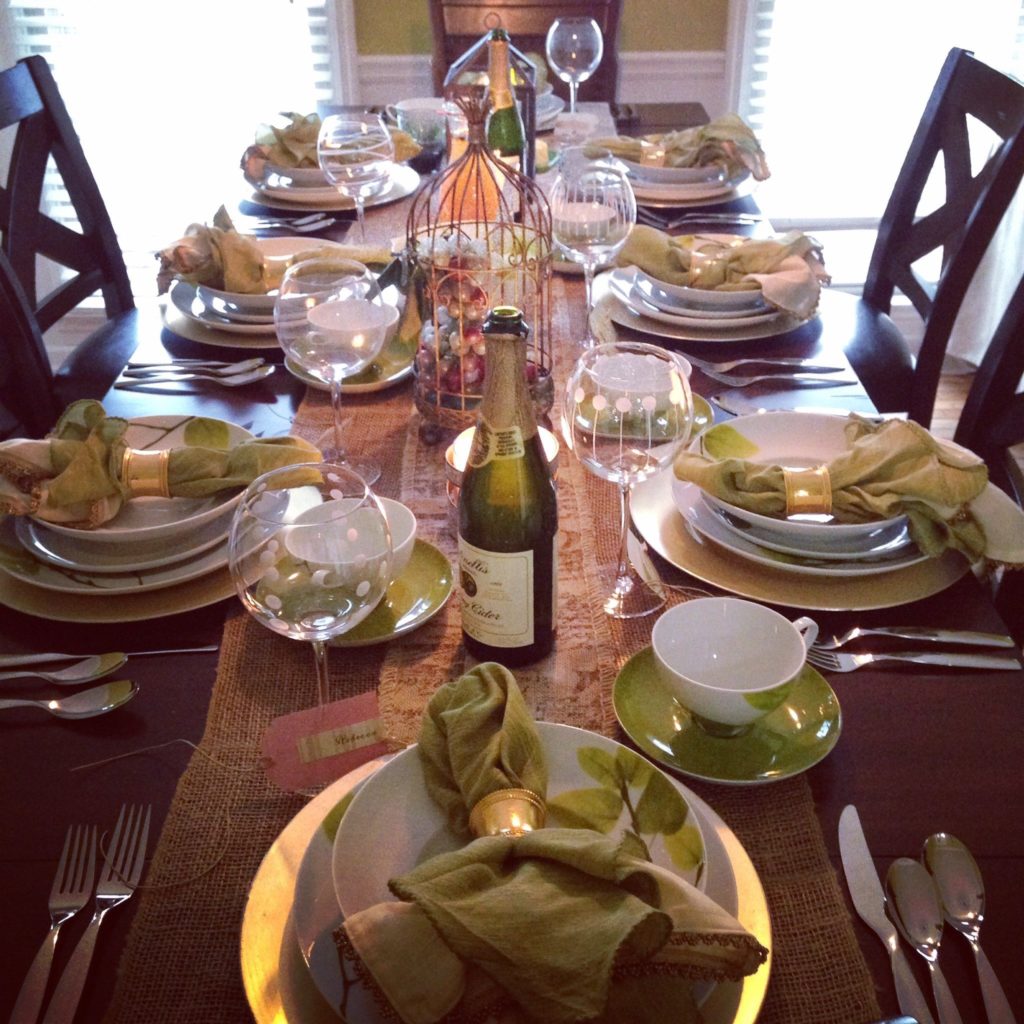
Preparing meals at home can also save you money which means less stress! I recently compared end of year budget results with several of my friends who had previously complained about the expense of spending money on buying organics.
Dinner at Home is Good for the Budget too!
The results were shocking, let's just say that when you are looking at your budget, you need to pay really close attention to your “dining away from home” category! Don't get me wrong, having dinner out from time to time can be a great family experience as well. Maybe make it the exception, not the norm.
Spending time around the family table helps kids learn to say no to peer pressure. Stability at home means kids feel more secure. Even when mealtimes feel hectic or disorganized parents can take comfort in the fact that simply having regular mealtimes may be providing your child with stability. A stable child is more resistant to peer pressure. If you are looking for ways to get to know your children better and open up dinner conversation, check out Momastery's idea for the key to unlocking your child's heart.
Benefits of Family Meals :
- Higher self esteem
- A stronger sense of connectedness
- Healthy meals will help your children to have good physical health
- Better grades. Kids who eat dinner with the family score higher on tests resulting in higher academic performance.
- Improved social skills. Family meal time is a perfect opportunity to learn table manners and waiting your turn.
- Stronger sense of well-being.
- Open to new foods. Meal planning with kids enhances this benefit too. Explore countries and cultures at the meal table.
- A better chance to learn to enjoy eating vegetables and healthier food choices. Obesity is an epidemic in America. When you eat together at home you can control portion sizes . When you eat together at home you can control portion sizes
- Family dinner time is a great platform for having discussions about nutrition and where food comes from. We also like to discuss politics such as anti-labeling laws, acts being passed by congress and other topics as they relate to the food industry.
- Eating dinner together with your family can be a huge stress reliever for parents who work.
Eating together as a family can do so much for children but that doesn't mean meals have to be a huge deal with fancy food and fancy plates. If you prefer you can always use paper plates and serve simple fare! The children will love any effort you make at having family time. After meal times, don't be in a hurry to clear the plates either. Relax and enjoy your meal time with your children.
On occasion spend an extended amount of time just socializing with your children at the dinner table. Just sit and bask in the togetherness for a while, tell your children some funny stories from your own childhood, or from your day. Always try to keep the conversation on a positive note. Try implementing the rule, “only say nice things at the table.”
Here are some meal time habits to think about:
- Plan your meals ahead of time. Waiting until the last minute is stressful. Creating meal plans will improve the chance of healthy eating.
- Keep your meals simple featuring healthy food. Unless you enjoy cooking elaborate meals or you cook together with your family. (If so, check out my cookbook club!)
- Try to make your meals as nutritious as possible by eliminating fast food. Talk about subjects that are not stressful to encourage relaxation and good digestion.
- Create a warm atmosphere by using candles or special lighting. We like to play soft music in the background. On Spotify, I have a playlist for the dinner table.
- Do your best to make the meal delicious, beautiful and fragrant. Certain smells evoke childhood memories for me, and they will for your children too. The more colors you have on your plate the better. You can even use herbs to decorate your dishes, it is very simple.
- Have enough for seconds, if they don't get eaten, you can always pack them in tomorrow's lunch boxes!
Research Backs Frequent Family Dinners
Research shows that families who eat together at least five times per week reap great benefits
These include better vocabulary and lower rates of eating disorders. Of course, it's ok to eat a meal in front of the television once in a while, but try to save it for the rare occasion. For example, we recently sat down together to watch Paddington Bear.
Benefits of Family Meals includes Breakfast or Lunch if that works for your family
Sometimes life throws circumstances at you that prevent you from having dinner together as a family during the week.
If so, try to make a family breakfast meal. You can also opt to have lunch with your child at school when possible. Try planning a picnic some weekends.
Time to Do Nothing
These days, we are rarely bored. I don't recall ever hearing my two youngest children say “I'm bored.” There are so many ways to be entertained nowadays. This is not necessarily a good thing. Children need time to do nothing. Hey, parents need it too! So many of us do not know how to “do nothing.”
I was raised to believe that busy is good. I remember jumping up when I heard my parents return home from work. God forbid they think I had been just sitting around. That mindset has carried over into my adult life. Sitting around = not being productive.
Even though busy has always felt “normal” to me, I have always practiced one specific way to rest and relax while bonding with my family. It is having dinner together. “Busy” is a hard habit to break.
More Inspiration for Slowing Down for Family Time
Read Realistic Tips On Slow Living To Help You Stay Balanced to see how I made changes after my teenage daughter suggested we were always rushing everywhere. Young children probably feel this too, but are unable to communicate that feeling to a parent.
Pick up the book, Addicted to Busy: Recovery for the Rushed Soul and you will read stats like 52% of people polled said that stress kept them from sleeping just the night before. Also the fact that 19% of adults ages 18-33 are stressed to the point of needing medication, and stress levels are still on the rise. Work, money, relationships, family, the economy, it's all swirling around in our heads day and night.
Beware the barrenness of a busy life!
Socrates
Meal Table Challenge: eat a meal together as many times as possible this week, preferably at least 3 times. I'd love to hear from you, let me know how it goes.
Sources
- Hammons AJ, Fiese BH. Is frequency of shared family meals related to the nutritional health of children and adolescents? Pediatrics. 2011; 127 (6): e1565-1574.
- Eisenberg ME, Olson RE, Neumark-Sztainer D, Story M, Bearinger LH. Correlations between family meals and psychosocial well-being among adolescents. Arch of Pediatr Adolesc Med. 2004; 158: 792.
- Elgar, Frank J et al. “Cyberbullying victimization and mental health in adolescents and the moderating role of family dinners.” JAMA pediatrics vol. 168,11 (2014): 1015-22. doi:10.1001/jamapediatrics.2014.1223
- https://thefamilydinnerproject.org/about-us/benefits-of-family-dinners/

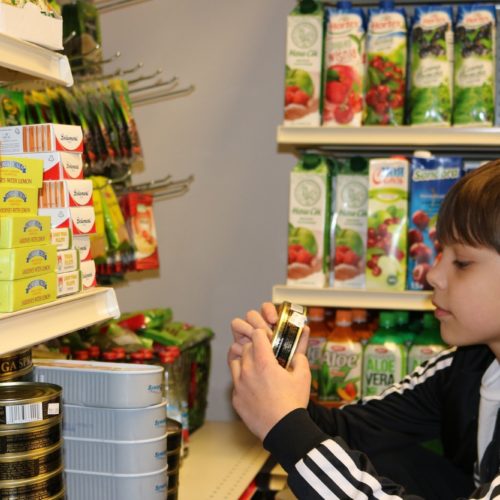
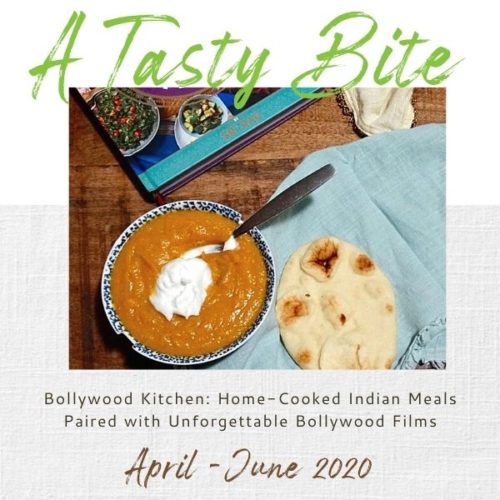

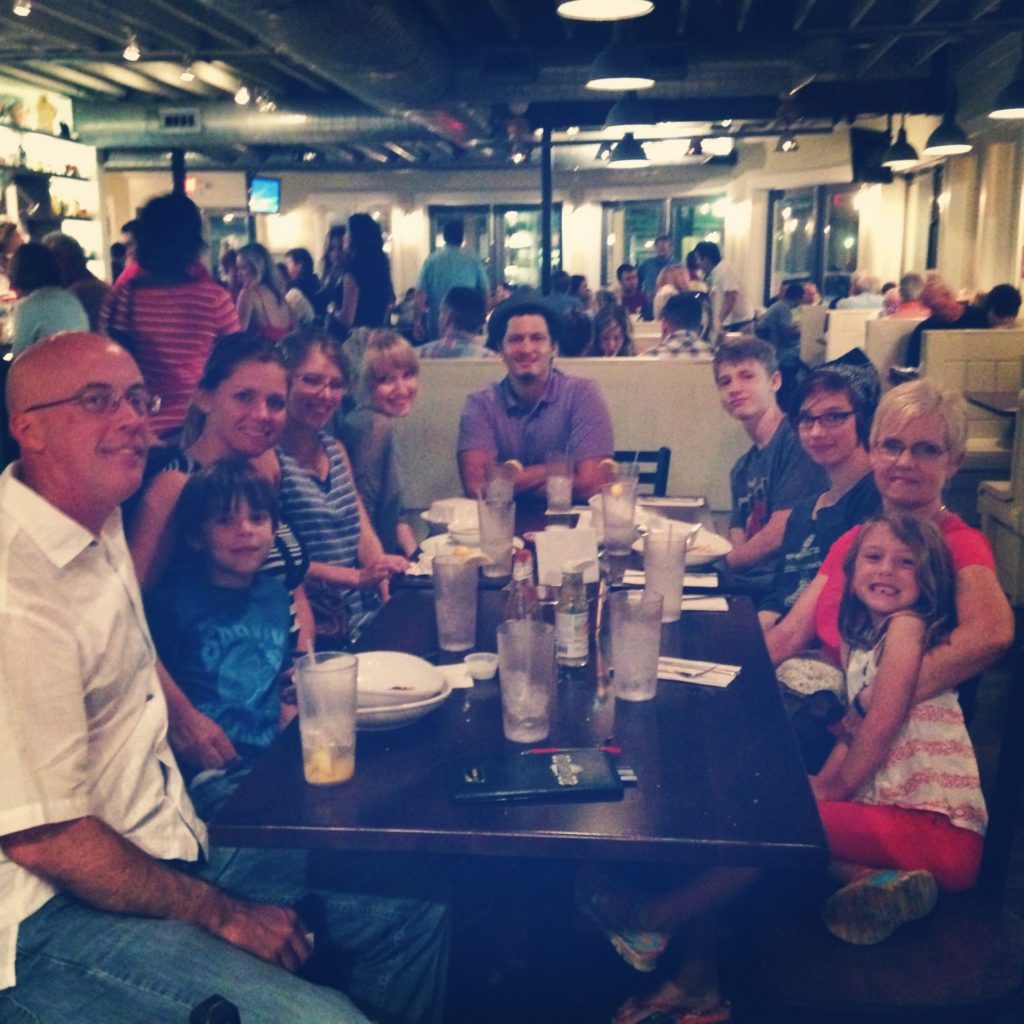
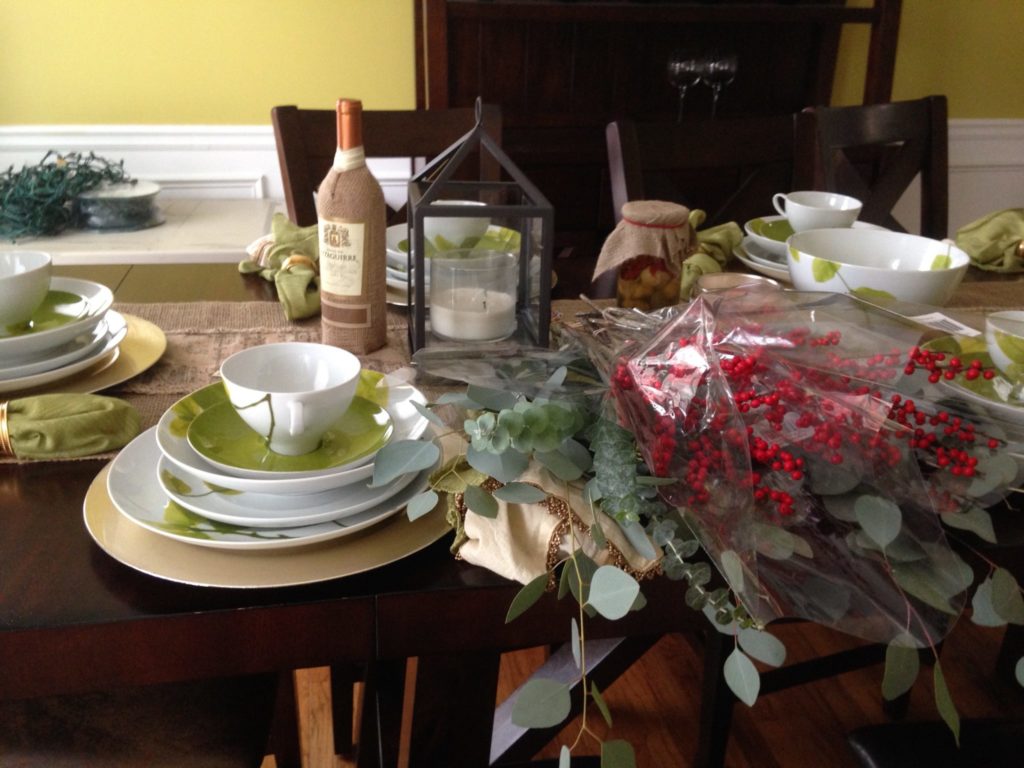
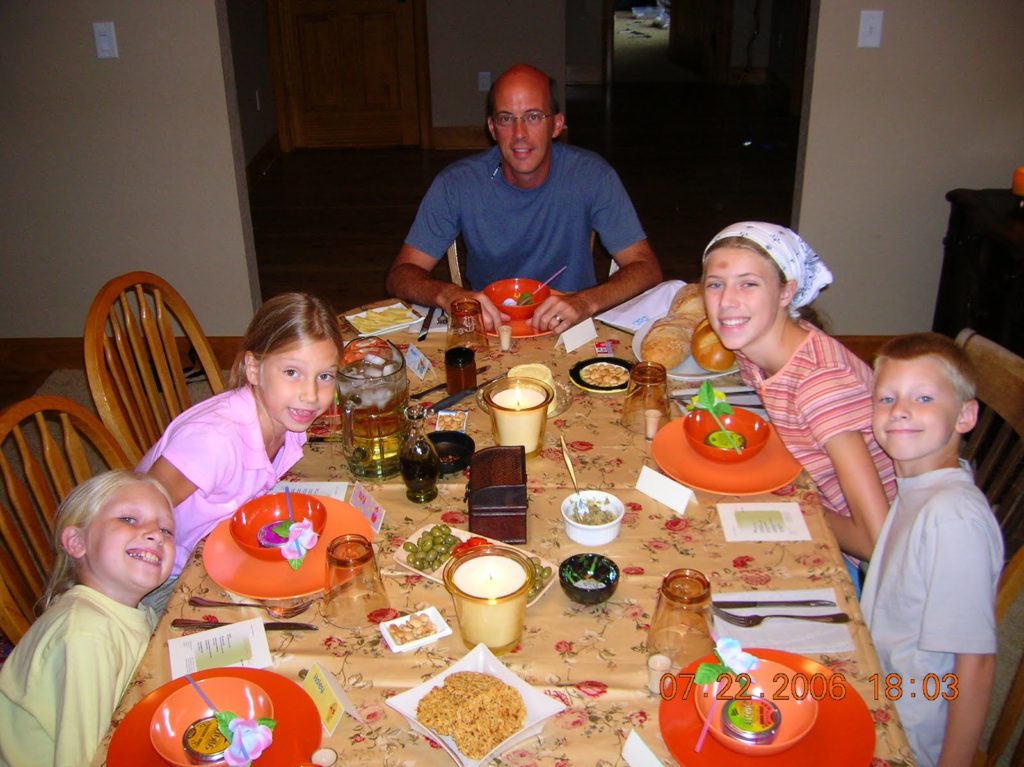
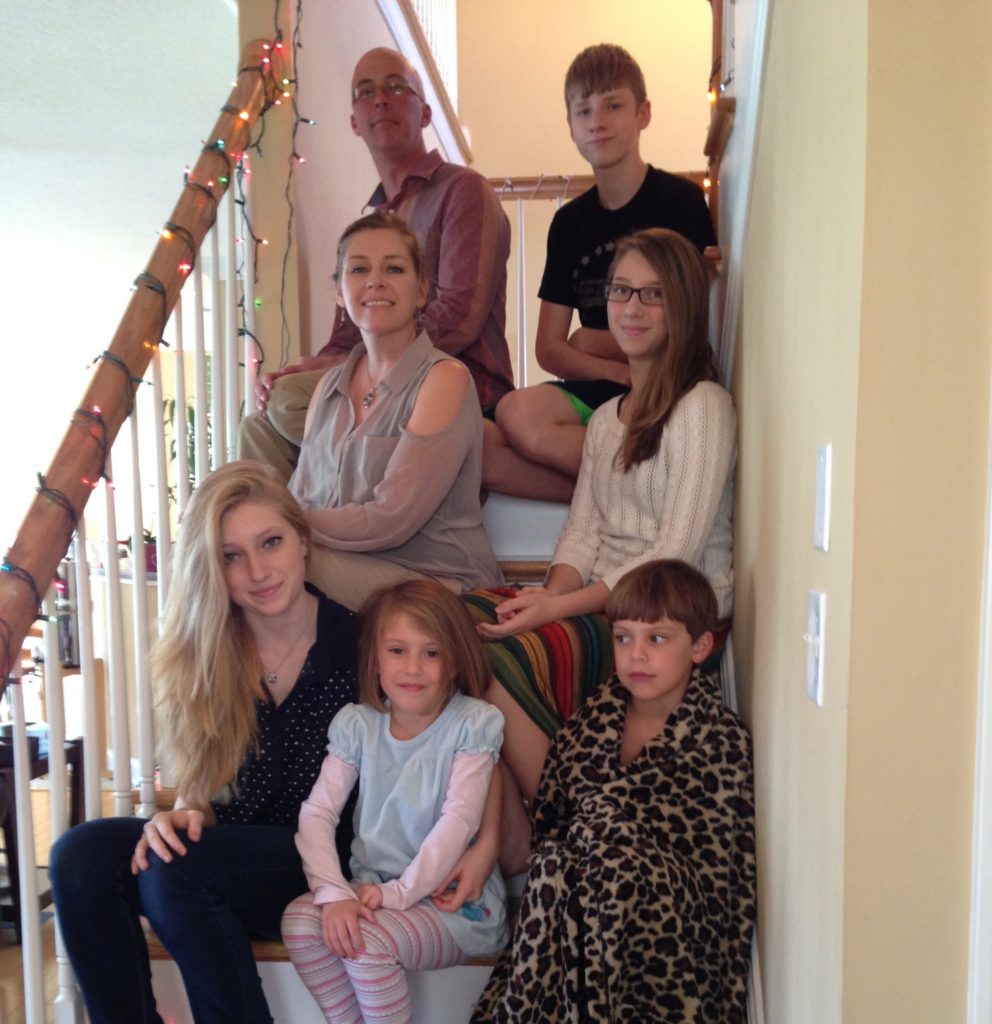
 Unhealthy Hair vs. Healthy Hair Signs
Unhealthy Hair vs. Healthy Hair Signs
Leave a Reply
You must be logged in to post a comment.